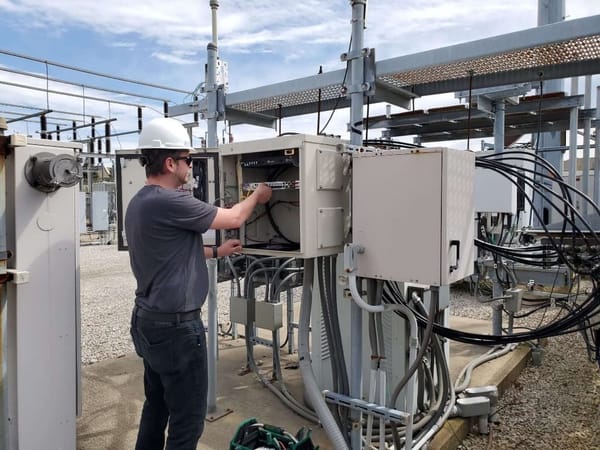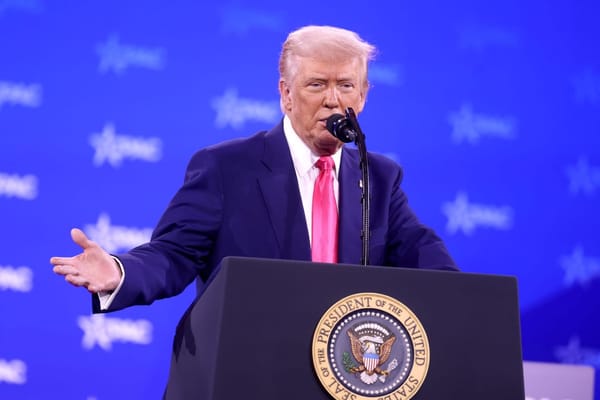Congress Has a Chance to Rid Our Networks of Huawei Once and For All
Armed with the Chinese Communist Party’s monies and resources, they flooded our markets with equipment riddled with vulnerabilities.
Joel Thayer

China has attempted to invade every aspect of our communications systems. Whether it’s through routers with known vulnerabilities, drones, or dancing for teens apps, the Chinese government’s pursuits of espionage are relentless and unwavering.
This is especially true for our communications networks. National Security Agency Director Michael Hayden reported that Chinese telecommunications companies, Huawei and ZTE, served as proxies for espionage on behalf of the Chinese government as far back as 2010. In 2012, the U.S. House Intelligence Committee released a report concluding that “Chinese intelligence services, as well as private companies and other entities, often recruit those with direct access to corporate networks to steal trade secrets and other sensitive proprietary data.”
The report explicitly listed Chinese telecoms Huawei and ZTE as central to that campaign. That makes sense when you consider that “multiple critical infrastructure systems depend on information transmission through telecommunications systems”, as stated in the report.
Huawei’s and ZTE’s ties to the Chinese Communist Party are well documented. Huawei even admitted to having an internal Party Committee apparatchik as part of its corporate structure. This problem is compounded by the fact that Huawei, in particular, is backed by state-sponsored banks to ensure it can underbid other contemporary equipment vendors, like Ericsson, Nokia, and Samsung. Armed with the Chinese Communist Party’s monies and resources, they flooded our markets with equipment riddled with vulnerabilities to surveille us with impunity.
These threats are far from theoretical. In 2017, the FBI confirmed that Huawei equipment could be used to disrupt the military’s communications with respect to its nuclear arsenal. How? Under the guise of gifting a garden to our National Arboretum, the Chinese government strategically placed Huawei equipment near their facilities to monitor those correspondences.
Abroad, the Australian government found that “Huawei personnel provided Chinese spies passwords to hack ‘foreign networks.’”
Under this backdrop, a bipartisan Congress passed the Secure and Trusted Communications Networks Act of 2019, which created the FCC's Rip & Replace program. This reimbursement program at the Federal Communications Commission funds the removal of untrusted telecom equipment and services (including equipment produced by Huawei and ZTE). The program also provided funding to carriers to replace that equipment and services from trusted vendors, like Ericsson, Nokia, and Samsung. Hence, the “rip and replace.”
So, where’s the rub?
The FCC was authorized to reimburse companies for the cost of ripping out and replacing this equipment, but Congress has only provided 39.5 percent of the funding needed to reimburse providers for replacing the untrusted equipment. This translates to only about a quarter of Rip & Replace recipients, certifying that they have removed all of their unsecure equipment. This also means that there are at least 24,000 pieces of equipment from Huawei, ZTE, and other Chinese companies spread over 8,000 locations in our wireless telecom networks.
Worse, this disparity in funding has led to a slew of unintended consequences, especially for small and rural providers. To start, without additional funding, many of them will be forced to eliminate service in critical areas of their networks. Multiple providers have reported that, without additional funding through this initiative, they will reduce coverage areas by over half, with some eliminating service by 90 percent in certain states, threatening communities’ access to basic wireless communication and emergency services. These are small, family-owned companies, that in some cases serve huge, Western states, but only have about 30-40,000 subscribers to their networks.
Estimated coverage cuts would be catastrophic for communities across our nation. Eliminating service in certain areas will not just affect that company’s subscribers, it will also affect millions of Americans who roam onto their networks for connectivity, including for 9-1-1 and emergency services. Even if you do not subscribe to the network, that company’s network is usually the only one in that area, so you would use their network for a 9-1-1 call. Without more funding, 9-1-1 calls will drop, and we don’t want to think about what could happen if emergency services cannot be connected to someone in need.
But Congress has a chance to right the wrong. Currently, members are considering another National Defense Authorization Act. In general, the NDAA provides appropriates funds for the Department of Defense, nuclear weapons programs of the Department of Energy, and other defense-related activities.
The NDAA is a great avenue because appropriating funding to rid our networks of harmful equipment from a known foreign adversary is well within the NDAA’s policy purview.
Indeed, Congress has used the NDAA as a vessel to accomplish this very goal. In 2018, Congress passed an NDAA that prohibited the DOD from procuring equipment or services from Huawei. In 2019’s NDAA, Congress included Section 889(a)(1)(A) that barred “all executive branch agencies from procurement or contracting that includes telecommunications equipment or services from Huawei, ZTE, and certain other Chinese corporations.” In 2021’s, Congress attached funds to provide private competitors to Huawei support to “offer secure and affordable communications networks domestically and internationally.”
Congress should do the same here. Purging our networks from equipment designed to harm us and help our most dangerous foreign adversary is a national priority. This requires funding rip and replace expeditiously to thwart the threat, and the NDAA can be a vessel to do just that. Our national security deserves no less.
Joel Thayer is president of the Digital Progress Institute and an attorney based in Washington, D.C. The Digital Progress Institute is a nonprofit seeking to bridge the policy divide between telecom and tech through bipartisan consensus. This Expert Opinion is exclusive to Broadband Breakfast.
Broadband Breakfast accepts commentary from informed observers of the broadband scene. Please send pieces to commentary@breakfast.media. The views expressed in Expert Opinion pieces do not necessarily reflect the views of Broadband Breakfast and Breakfast Media LLC.









